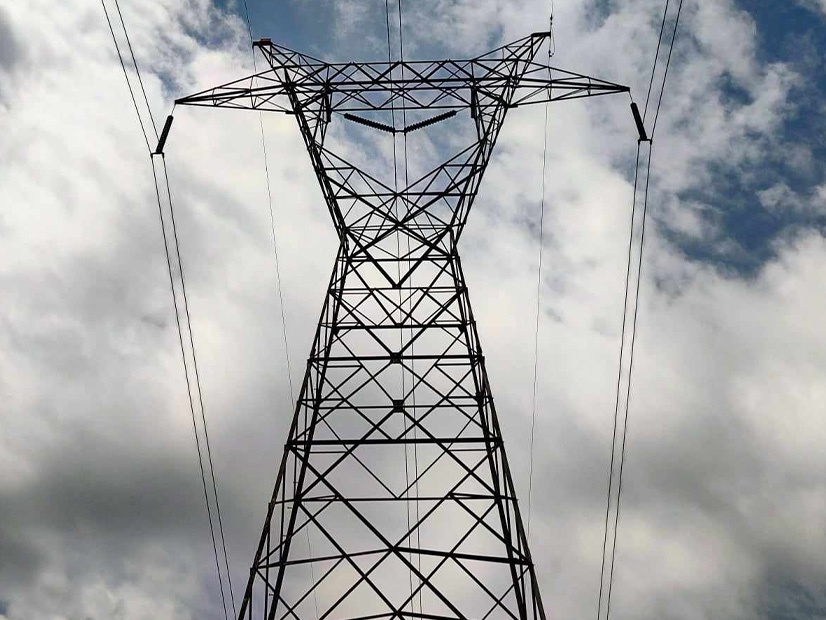ISO-NE has suspended its implementation of Order 2023 compliance and rescinded transitional cluster study agreements because of FERC’s lack of action on its compliance filing, Manager of Resource Qualification Alex Rost told the NEPOOL Transmission Committee on Sept. 25.
The RTO submitted its compliance to the commission in May, requesting an Aug. 12 effective date (ER24-2009). FERC has yet to rule on the proposal, throwing a wrench in ISO-NE’s implementation timeline.
Order 2023 requires grid operators to transition from first-come, first-served serial interconnection process to a first-ready, first-served process using cluster studies to evaluate multiple projects at a time. (See FERC Updates Interconnection Queue Process with Order 2023 and NEPOOL PC Backs ISO-NE Tariff Revisions for Order 2023 Compliance.)
Hoping to stick to its proposed timeline, ISO-NE issued transitional cluster study agreements to eligible interconnection customers on Aug. 12. The RTO planned to start work on the transitional cluster study Nov. 11 and provide a final report on the cluster in August 2025.
ISO-NE wrote in a Sept. 23 memo that it’s rescinding the study agreements because of FERC’s inaction. The RTO announced that it was pausing its work on Order 2023 compliance in early September.
A delay of the transitional cluster also would affect the timing of the first standard cluster study, with the first activities for this subsequent process set to begin immediately after the end of the transitional process.
FERC’s delay also has dealt a blow to ISO-NE’s plan to enable late-stage projects to participate in reconfiguration auctions (RAs). Currently, resources need to gain a capacity supply obligation and associated capacity interconnection rights in a Forward Capacity Auction (FCA) in order to participate in RAs, but ISO-NE has delayed its next FCA by three years to make significant changes to its capacity auction process. (See ISO-NE Outlines ‘Straw Scope’ of Capacity Market Reforms.)
ISO-NE has proposed a “Transitional CNR [Capacity Network Resource] Group Study” to provide a “one-time opportunity for late-stage interconnections to achieve capacity interconnection service through the 2024 interim reconfiguration auction qualification activities.”
However, the RTO wrote in its compliance filing that the Aug. 12 effective date for the order is necessary to “align the Order No. 2023 transition process” with the RA qualification timeline. It noted “a delayed order in this proceeding would result in these interconnection customers needing to wait until a later auction cycle, which would not only be detrimental to those interconnection customers, but would result in a less robust auction.”
ISO-NE determined in early September it no longer would proceed “with the Transitional CNR Group Study proposed in the compliance proposal.”
The RTO plans to proceed with interconnection studies under its existing tariff rules going forward.
“When FERC issues an order addressing the compliance proposal, the ISO will assess how to move forward on implementation based on the timing and content of the order,” ISO-NE spokesperson Mary Cate Colapietro said. “We can’t speculate until we actually receive the order.”
Transmission Planning
Also at the TC, Brent Oberlin of ISO-NE provided a comparison of ISO-NE’s new Longer-Term Transmission Planning (LTTP) process and the requirements of FERC Order 1920. (See FERC Approves New Pathway for New England Transmission Projects.)
In general, the Order 1920 process is broader than the LTTP, requiring long-term planning to consider future interconnection needs and how asset condition projects could be properly sized to reduce overall costs. The LTTP also includes more state discretion around when the planning process is initiated, the assumptions used in studies and which projects are selected.
In future meetings of the TC, Oberlin said ISO-NE plans to break down the order into “manageable pieces for stakeholder review and discussion,” detailing which processes will need to be created, and which existing processes will need to be modified, to comply with the order.
He added that ISO-NE will develop changes to its interregional planning procedures separately from its regional planning procedures. The RTO will begin discussing compliance changes in more detail at the TC’s meeting in October, ultimately aiming for a Participants Committee vote in May 2025. The deadline for regional compliance filings is June 12, 2025, and the deadline for interregional compliance filings is Aug. 12, 2025.




